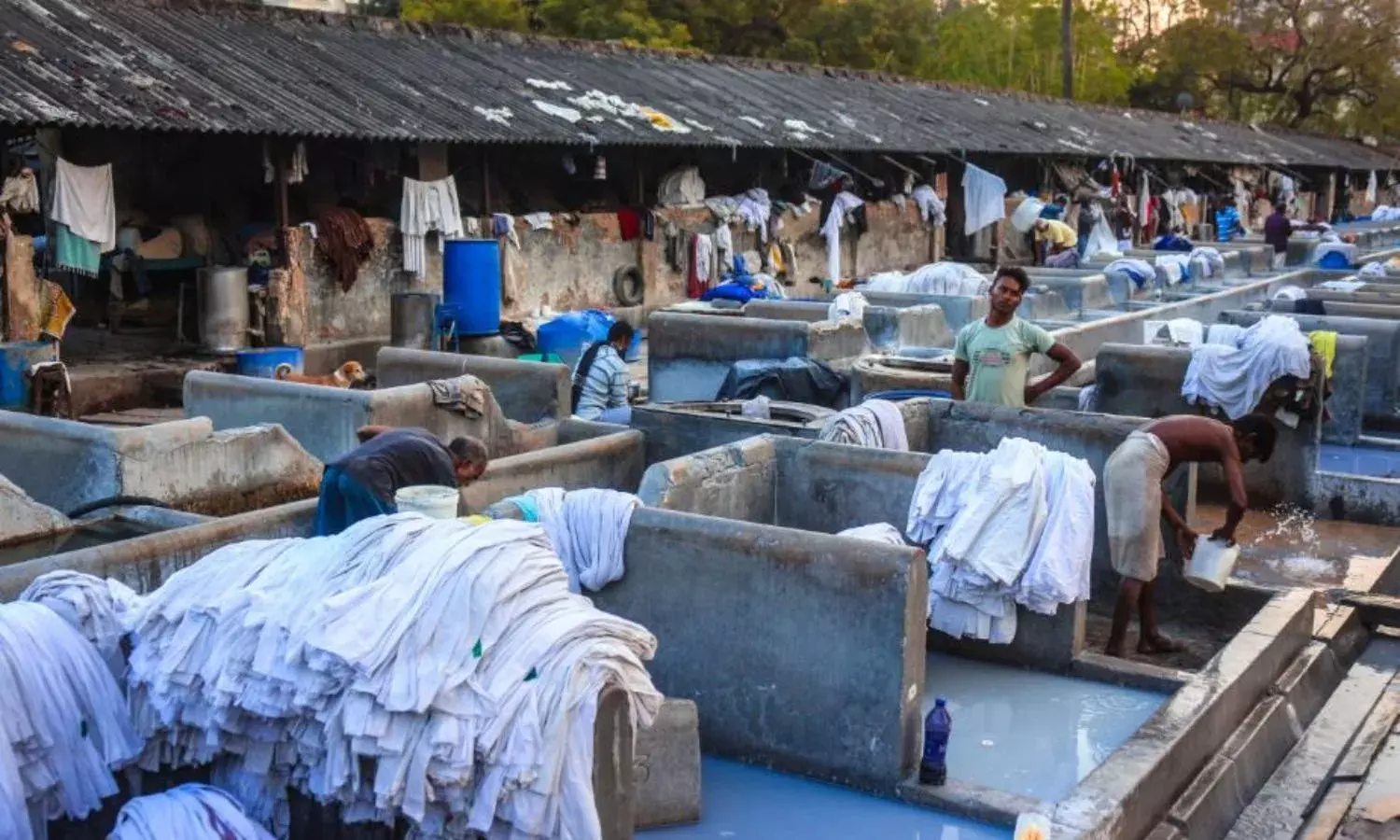In Pictures: South Dhobikhana, Calcutta, Established 1902
'I would like to mention that celebrities and big laundries send us their clothes for washing'

If you search for dhobighaat on Google the results are likely to feature the Sanjay Dutt starrer Munnabhai MBBS, which had shots of Mumbai’s famous Dhobi Ghat, or Kiran Rao’s directorial debut of the same name. But not many know of Kolkata’s own dhobighaat. Even many Kolkatans don’t know about this large open air laundry.
Hidden in the chest of the City of Joy, you will come across this dhobighat, or human powered washing machines in today’s lingo, tucked away in an insignificant lane if you take the route from Ballygunge Circular Road to the Ritchie Road/ Hazra opening. Upon entering the lane, you will find an old gate with a board reading South Dhobikhana.
Calcutta was the capital city of Colonial India and that’s why the British in 1902 set up this dhobikhana with 200 washing blocks that are still regularly used by the dhobis.
Water is supplied from the Tala Tank of the Calcutta Corporation. The 117 year old dhobikhana has 210 small wells better known as ‘choubachha’.
This colonial legacy sees scores of dhobis washing heaps of clothes from dawn to night.
“I’ve been working here for the last 5-6 years and I have seen a few changes. I would like to mention that not only celebrities but big laundries too send us their clothes for washing,” says a dhobi requesting anonymity.
The appeal of this huge public launderette is the quality service it provides at cheap rates. “If your local washerman charges you 20 rupees for a bedsheet, we charge only Rs.10. And rest assured the job is of superior quality,” another dhobi says.
South Dhobikhana has only a low voltage electricity supply, so the use of electronic irons is restricted. Instead, steam coalirons are used.
Some of the washermen here earn a monthly salary, while a few earn their livelihood counting the number of clothes they wash each day.
The 200 open air concrete wash blocks are divided into ten rows. There are around 108 bhattis but the number has come down to 100 nowadays, says Rabi Das, a dhobi here.
The hoj has an attached oven for cleaning greasy clothes with hot water. The oven is coalfired and cleans clothes through the steam created by heating water.
Ram Choudhury, 80 years old, has been preparing coal for the oven and steamirons for the past 65 years.
Some dhobis have been working here for over 50 years. Their need drives them to go to work in scorching summer and winter chill.
South Dhobikhana has a rich legacy but it may soon become a thing of the past. The younger generation of washermen are not interested in this traditional job any more, and are looking for more lucrative careers.



